WiRED-Trained Community Health Workers' Stories
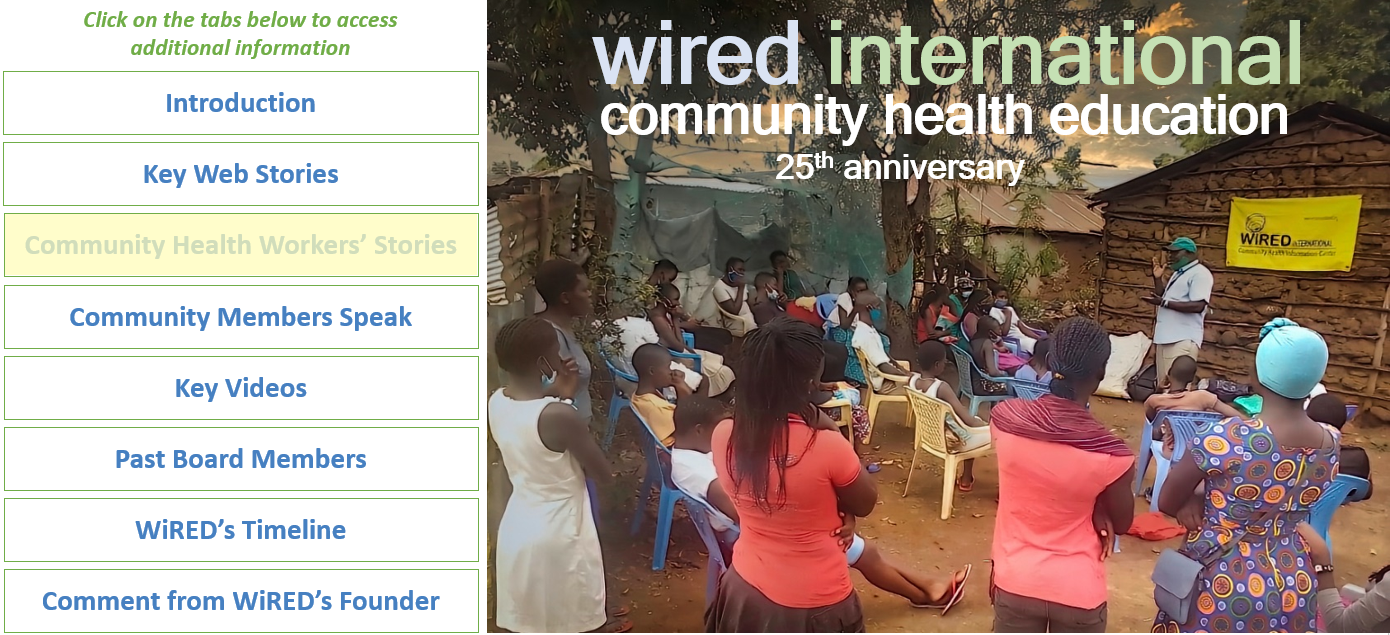
WiRED International-trained community health workers (CHWs) in Kisumu, Kenya, confront a staggering number of health concerns during a single month — ranging from HIV/AIDS to gender-based violence to pneumonia, heart disease, malaria and COVID-19. The WiRED paraprofessional team of 21 CHWs now reach an average of 11,500 people per month!
The following are selected testimonials from CHWs — proof of how, as trusted sources, they are elevating health literacy in their communities.
Aggressive action by CHW Imelda Anyango helps curb the spread of COVID-19 and other diseases.
COVID-19 has been a stampede in our country. The pandemic has affected Kisumu economically in that some businesses have been closed, people displaced from their working places, some losing their jobs and going back to their native homes to start from square one.
As a community health worker, following the WHO directives, I protect myself first. I make sure that I wear a mask when in public places. I sanitize. I create awareness of COVID-19 by teaching people what COVID-19 is, how it spreads, signs and symptoms and then preventive measures like wearing masks, washing hands at all times, avoiding over-crowded places and maintaining social distancing.
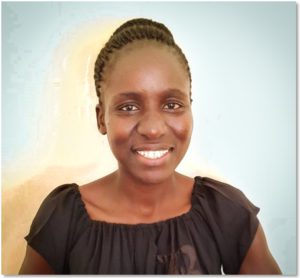
I have also taught the community that when one is feeling sick and has COVID-19 signs and symptoms, they should stay at home and monitor their symptoms. If symptoms persist, they should see medical assistance.
I have walked door-to-door and in public places advising the community, and it has brought a great impact to many people in Kisumu. In fact, cases of diarrhea have dropped because of the hand-washing hygiene. People are watching what they eat by eating balanced diets to boost their immune systems and also by exercising. Those who are adhering to these COVID-19 directives are safer from contracting not only COVID-19 but also many other infectious diseases, and the people are grateful.
CHW Tracy Agatha Achieng’ educates teens about HIV/AIDS and pregnancy.
 Teenage pregnancy has really affected many young people in our community due to peer pressure and wrong advice from each other. Many teens get pregnant not knowing the HIV status of the partner. After World AIDS Day, I educated teens on the importance of going for HIV tests, but the women said they can’t get their partners to go. Knowing that—and that some young women shared that they have numerous partners—I explained that PrEP (pre-exposure prophylaxis) can reduce the chance of getting HIV from sex or injection drug use. I encouraged the teens to consider PrEP if they can’t abstain. I made clear that when taken as prescribed, PrEP is highly effective for preventing HIV. I added that PrEP does NOT prevent pregnancies or STDs.
Teenage pregnancy has really affected many young people in our community due to peer pressure and wrong advice from each other. Many teens get pregnant not knowing the HIV status of the partner. After World AIDS Day, I educated teens on the importance of going for HIV tests, but the women said they can’t get their partners to go. Knowing that—and that some young women shared that they have numerous partners—I explained that PrEP (pre-exposure prophylaxis) can reduce the chance of getting HIV from sex or injection drug use. I encouraged the teens to consider PrEP if they can’t abstain. I made clear that when taken as prescribed, PrEP is highly effective for preventing HIV. I added that PrEP does NOT prevent pregnancies or STDs.
CHW Daniel Ayieko suspects a young child has asthma and springs into action.
Asthma is a chronic disease that can affect everyone. I spotted a young child wheezing and asked the mother about the child. She told me that she suspected that the child had a common cold, and that the coughing was due to a change of weather.
But to me, as a community health worker, I thought that it might be best if the child were taken to the hospital for medical examination. That way the mother could know for sure what was wrong with the child.
I referred the child to the hospital. The child was tested and was found to be ailing from asthma. The child was put onto medication and is now showing some improvement.
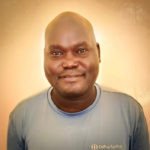
Though asthma is a chronic disease, proper medication and well-monitored taking of drugs can help reduce the chances of child fatality from asthma.
CHW Bunnyce Atieno encounters a number of interesting cases in her work, and she offers several examples here.
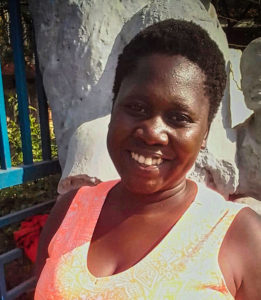 Bunnyce believes even a minimal threat of cholera in a community cannot be ignored.
Bunnyce believes even a minimal threat of cholera in a community cannot be ignored.
Our communities, though industrialized, still get infected with cholera. The reason why we still suffer from cholera is, in fact, because of the industrialization that is still taking place! While the government is busy building roads and other things, they do not always take precautions regarding old water pipes. Therefore, when there is a breakage anywhere along the lines, our water can become contaminated. It is through this contamination that our community members get infected with cholera.
Though cholera is not a big threat in our community, it still affects some parts of our community. Therefore, as a community health worker, I teach my audiences about how to treat their drinking water using solar disinfection and boiling water, and also to wash their hands clean to prevent them from contracting cholera and other diseases.
Bunnyce’s empathy changes attitudes and inspires her community’s trust in doctors and medical information.
In the field, I came across this woman who was suffering from fibroids. She was very depressed because she believed she had cancer and that cancers are untreatable. I was deeply moved when she told me she was only awaiting her death.
I assured her that fibroids are non-cancerous growths. She said that the doctor told her the same, but she did not believe it. She did not trust doctors because she believed they often tell people lies. But since I, as a community health worker in her community, confirmed what the doctor said, she promised to start going to treatment and to work on her depression. I will be checking up on her to make sure she is following through with her treatment — and just to lift up her spirits!
Bunnyce challenges misinformation with facts.
I am surprised even with this high cost of living and high oil prices in Kenya that some of us still suffer from obesity. Nowadays, this is a very rampant disease among the community members.
I met a woman who cried to me asking me what she can do to cure her obesity. She has been trying every means to lose weight — including drinking vinegar and using traditional medicines — but nothing seemed to work.
As a community health worker, I taught her that what she needed to do was commit to getting exercise and changing to a healthy diet. I shared with her that nutritious food need not be expensive. She agreed to let me work with her, and we are beginning to see some changes. She now has faith she is finally doing the right thing for her body.
As a CHW, Zachary Omondi is on the frontline to help stop the spread of COVID-19.
Kisumu has been experiencing a steady increase in the number of COVID-19 patients in the recent past according to the reports from the Ministry of Health. Kisumu has also reported the country’s first case of the variant first spotted in India.
Due to the escalating numbers, the national government, in collaboration with the county government, has invoked strict measures to help stop the spread of the virus. As trained community health workers, we have been in the frontline in helping the government and other stakeholders in implementing these policies. As CHWs, we have been in the forefront in sensitizing people on the need for frequent hand-washing, wearing of masks properly, sanitizing and avoiding crowded places.
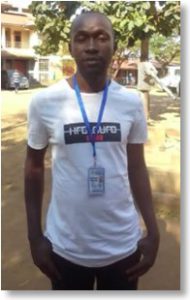 We have also ensured that members of our communities have hand-washing stations within their compounds and in market places. We have taken the initiative of visiting schools to educate and sensitize students on the need of stopping the spread of COVID-19. As CHWs, we believe that learners and students are a proper link between CHWs and the community and can easily pass that information back to the society.
We have also ensured that members of our communities have hand-washing stations within their compounds and in market places. We have taken the initiative of visiting schools to educate and sensitize students on the need of stopping the spread of COVID-19. As CHWs, we believe that learners and students are a proper link between CHWs and the community and can easily pass that information back to the society.
Another step that we have taken is to visit the elderly and the people with underlying health conditions to sensitize them on the vaccination against COVID-19. This we are doing by informing them about the benefits that come with the jab. We also encourage other members of the community to get the jab.
Throughout this sensitization effort, we have seen the society embracing change, and we hope to see a steady decline in the COVID-19 numbers that are reported from Kisumu.
CHW Mildred Digolo meets challenges in her community and reports on some of them here.
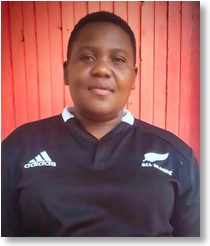 Mildred notes that her work as a CHW increases people’s willingness to seek valuable health information.
Mildred notes that her work as a CHW increases people’s willingness to seek valuable health information.
Health information in my community has not been taken seriously. But after the WiRED Community Health Worker Program training, we CHWs started working in the community providing valuable health information. Now the people trust our referrals and are willing to go to the medical facilities for help.
In the training, I got more information about COVID-19 even before the government-mandated COVID lockdown and about how to manage COVID-19. Before training, I could not do first aid. But after the training, I have some skills and now am in a position to perform first aid before I do referrals to a facility. Patient assessment was quite challenging for me. But after being trained, I can now do it on my own and know how to handle some of the problems and refer people effectively to clinics.
Because of WiRED training, the community I am in today is changing gradually. People are very eager to be taught more and more about health issues. They have been lacking good information for so long. Thanks to WiRED International and the training they gave us CHWs, we are now able to provide health education to the community. The community is so impressed, they keep requesting that we continue to offer them health information.
Mildred confronts her community about gender-based violence.
Gender-based violence can include violence against men (including abuse of boys by men and abuse of men by women) and abuse of women by women and men. Over ninety percent of violence is violence against women.
Violence is often used in the family situation as a weapon of power. Women are often in the subordinate position. Therefore, they are the ones who suffer violence and do so in silence. This can either be physical, sexual or psychological. But gender-based violence does not only occur within the family situation and can occur at work or in social gatherings.
I am very thankful that WiRED offers training in gender-based violence. As a trained CHW, I teach members of my community about gender-based violence. I can now make them aware of their rights and the procedures to follow to get help from this violence. I am happy that they are seeking help from the places where we direct them.
CHW Emily Ayua steps in to protect against drug abuse.
As a community health worker, I visited a home in my community. I met a woman and her children and talked about drug abuse and other diseases such as malaria and COVID-19. But the main topic we talked about was drug abuse, because of her current experience. The mother shared that her husband was an alcoholic and drug addict and that he is violent towards her and doesn’t support her and the children.
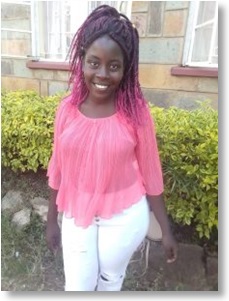 Because of my training, I advised her to report the matter to authorities or NGOs that deal with gender-based violence and to see how they can help her and the children.
Because of my training, I advised her to report the matter to authorities or NGOs that deal with gender-based violence and to see how they can help her and the children.
I was able to explain to her the meaning and benefits of rehabilitation, and advised her to try to suggest to her husband that he seek help. She said she will try to speak with her husband, but if things don’t change, she will seek help from NGOs, which can help with her financial, emotional, mental and physical heath.
CHW Pauline Adhiambo relates several experiences working as a CHW.
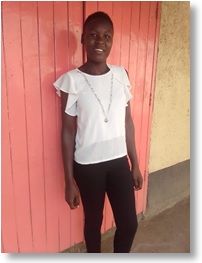 Pauline takes on age-old practices.
Pauline takes on age-old practices.
As I was doing a routine follow-up, I happened to come across a young mother who was undergoing mental torture. She shared with me her story. She has three daughters aged between nine and 16 years. Her husband is always drunk, cannot keep a job and has decided to marry off the 16-year-old so he will no longer have to support her. This has brought a lot of fighting in the family, as to whether the girl ought to be married off.
The mother is opposed to the practice, because she believes the girl is too young. She has attended a WiRED talk on gender-based violence and is convinced that, even if the daughter wants to go through with the marriage, she should make the decision when she is older — 18 years or above — so she will better understand how such a decision could affect her life. The mother urged me and the entire team to continue the good work that we have started, as it is going to help so many young people be aware and better understand the decisions they make in life.
Pauline tackles a mumps outbreak in her community.
There is a mumps outbreak in young children in my community, and I realized that people still have no idea what it is and how it spreads. I tell parents whose children are infected that mumps is a contagious virus that can occur any time of year and can cause long-term health problems if not managed properly. I explain to the unaffected that they can get the MMR vaccine to protect themselves and their children from getting and spreading not only mumps but measles and rubella. I said that the vaccine isn’t perfect, but like the COVID-19 vaccine even if you get mumps you will experience a milder illness and fewer complications. I also tell people that we would see many more cases without the vaccine.
CHW Juliete Omollo saves a child from malaria.
During one of my health education classes about malaria, I was talking to the residents about the signs and symptoms of the disease, like high fever, shivering, chills, pain in the muscles and abdomen. I shared with them other symptoms like fatigue, night sweats, nausea, diarrhea, vomiting and headache. I discussed some of the ways to protect ourselves against malaria, like sleeping under treated mosquito nets and vector control.
After the class, a woman approached me and requested that I visit her home. On our way to her homestead, she told me that her little girl was suffering from some of the symptoms we had talked about in the class.
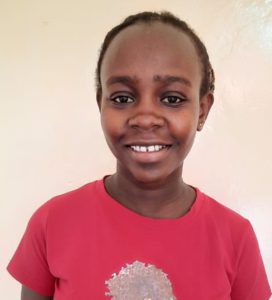 Upon meeting the little girl, I saw that she was sweating all over her body. She told me she had a terrible headache, and I saw that she was shivering and had been vomiting. Based on my knowledge as a community health worker, I concluded the child might be suffering from malaria. I told the mother to sponge the child with cool water to help reduce her high fever. I advised the mother to take her to the nearest health facility for further management. After two days, I did a follow-up home visit to see how the little girl was doing. She had been given anti-malarial tablets and, thankfully, was responding well to the treatment.
Upon meeting the little girl, I saw that she was sweating all over her body. She told me she had a terrible headache, and I saw that she was shivering and had been vomiting. Based on my knowledge as a community health worker, I concluded the child might be suffering from malaria. I told the mother to sponge the child with cool water to help reduce her high fever. I advised the mother to take her to the nearest health facility for further management. After two days, I did a follow-up home visit to see how the little girl was doing. She had been given anti-malarial tablets and, thankfully, was responding well to the treatment.
CHW Liz Odhiambo describes several situations she has faced in her work.
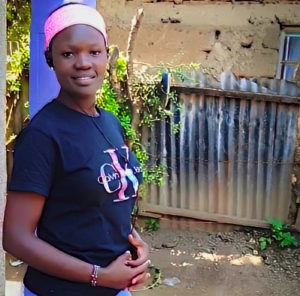 Liz untangles confusion about sexually transmitted diseases that misguides communities.
Liz untangles confusion about sexually transmitted diseases that misguides communities.
In my community many people suffer from diseases that they don’t understand. For example, many don’t understand that sexually transmitted diseases (STIs) are spread from one person to another. Furthermore, many people are unable to differentiate between urinary tract infections and sexually transmitted infections.
A woman came to me who was suffering from an STI but was treating it as a urinary infection, hence not ending the problem. As a community health worker, I taught her about the causes, prevention and treatment for STIs and advised her to go to the hospital with her partner for checkups and further treatment. Fortunately, she took positive action and now is doing well.
Liz takes control when proper water treatment is ignored.
Water treatment is the process of removing undesirable chemical and biological contaminants as well as suspended solids and gases from water. Water can be contaminated because of flooding and poor sanitary conditions.
In a certain village, people suffered from diarrhea, typhoid and cholera each and every time it rained, causing people to constantly seek treatment.
When I asked them if they normally treat their water, they told me that they did not have money to buy commercial water purification products. As a community health worker, I taught them that they do not have to use those products — that there are cheap processes like sedimentation, boiling water at least three minutes, and exposing water to the sun that will kill dangerous agents in their water. I taught them how to implement these processes and am very happy to see them practicing what I have taught them, thus preventing diarrhea, typhoid, and cholera.
